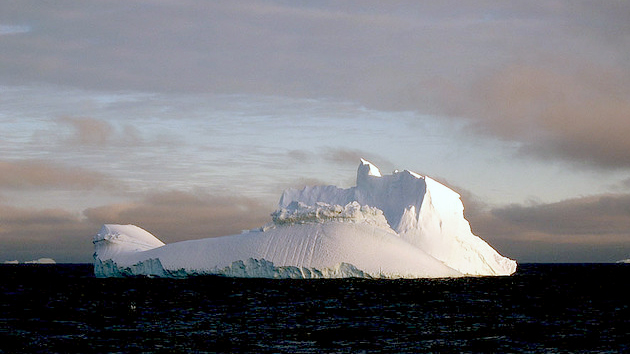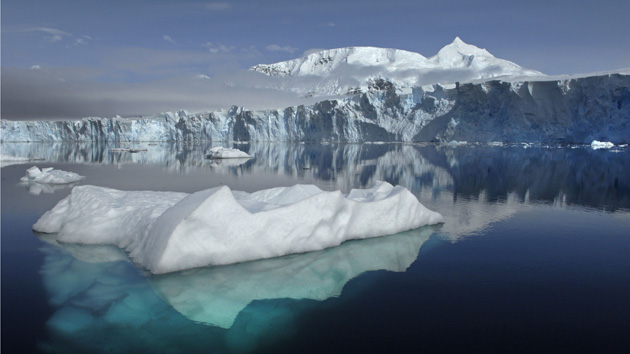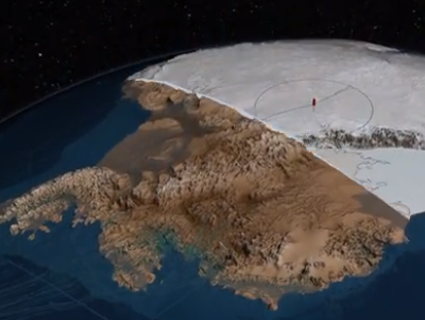This story originally appeared at CityLab and is republished here as part of the Climate Desk collaboration.
In the winter of 2002, a massive Antarctic ice shelf known as Larsen B suffered a catastrophic collapse. Over the course of weeks about 1,250 square miles of frozen material broke off and slid into the ocean. NASA reported it had “never witnessed such a large area…disintegrate so rapidly.”
Satellites caught the fast-warming continent’s stunning breakdown, which scientists believe was caused by a rash of abnormally hot summers. Here’s the ice shelf in January:

The next month:

And in April, when much of it had drifted into the sea:

At the time it was unclear if the rest of the shelf could survive such a major failure. Now scientists have the answer: No way. “We expect it will not last for more than a few years to come,” says Ala Khazendar of NASA’s Jet Propulsion Laboratory, in a video.
Khazendar is part of a team that recently forecasted the shelf’s demise in Earth and Planetary Science Letters. Since two-thirds of it went bye-bye in 2002, the structure measures only 625 square miles and is extremely unstable. That’s worrisome when you consider the role ice shelves play in maintaining the planet’s health. They act like buttresses for glaciers, slowing their slide into the ocean; without shelves, more and more glacial ice will enter the water and speed the rise of sea levels.
And that’s what’s “undoubtedly” happening with Larsen B, says Khazendar. The glaciers behind the shelf are thinning and speeding up, one by as much as eight times faster since 2002. (NASA compares this acceleration to a car zooming from 55 to 440 mph.) By the end of the decade it’s likely to be history—just another one of several large ice shelves to incur recent, unusually premature deaths.
“Although it’s fascinating scientifically to have a front-row seat to watch the ice shelf becoming unstable and breaking up, it’s bad news for our planet,” says Khazendar in a press release. “This ice shelf has existed for at least 10,000 years, and soon it will be gone.”















